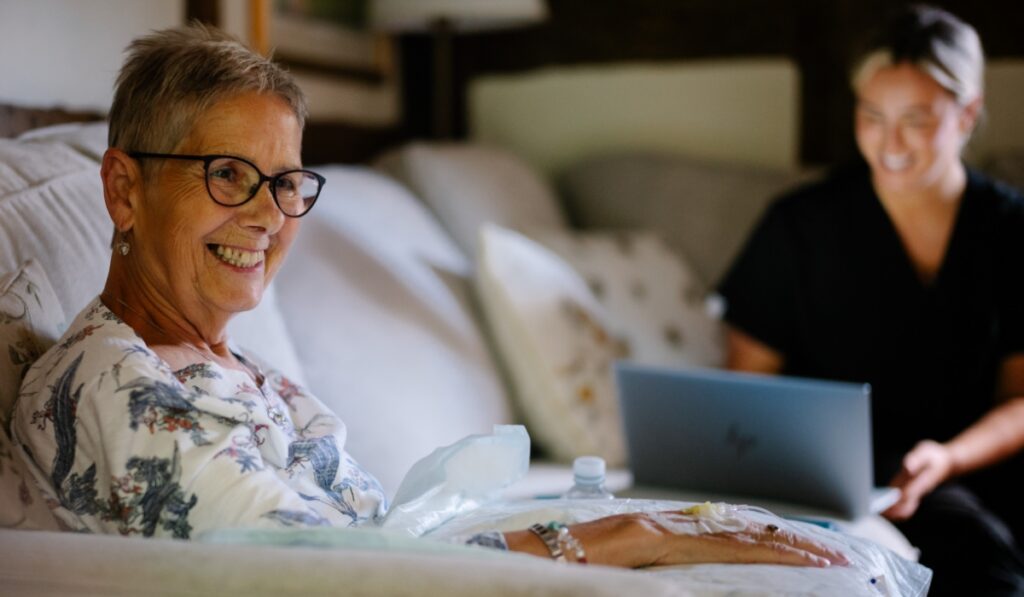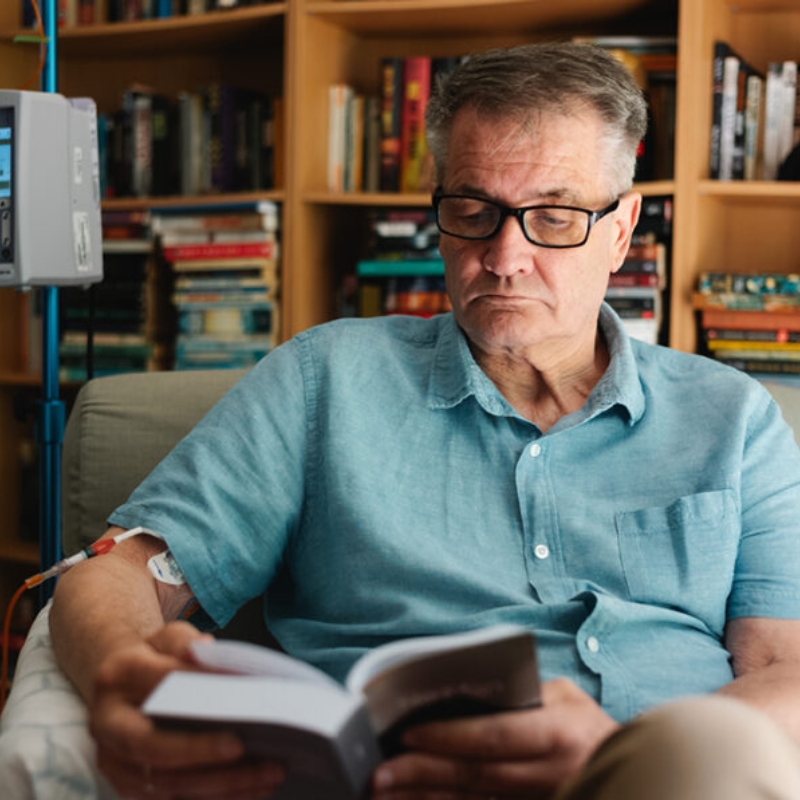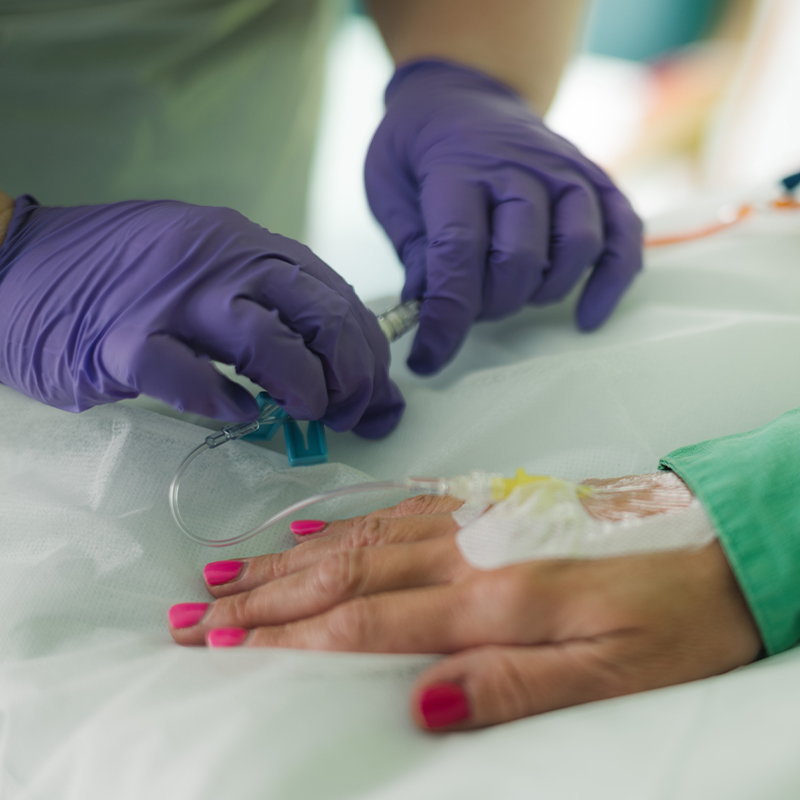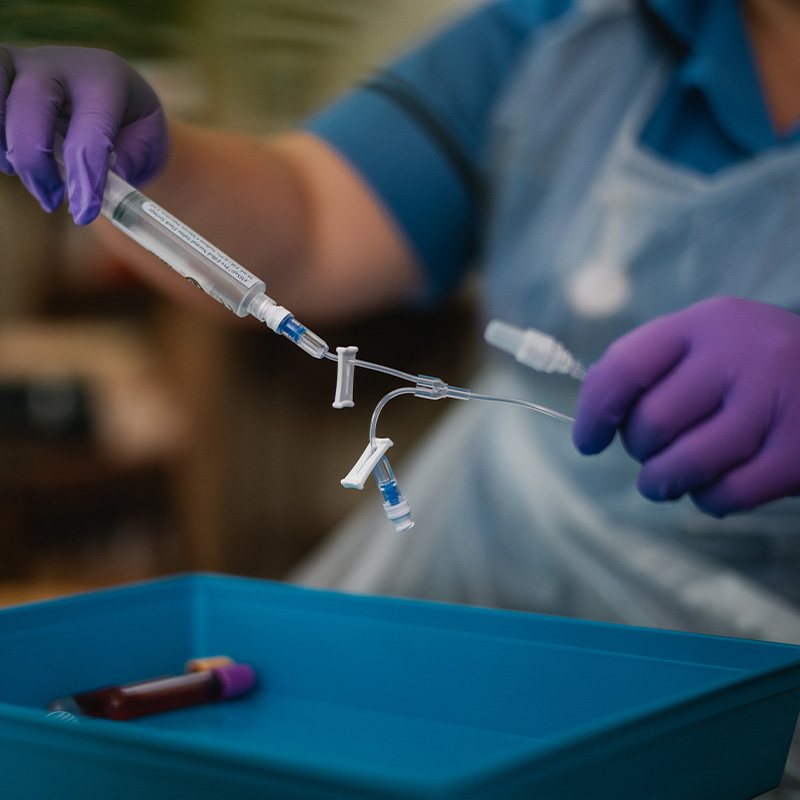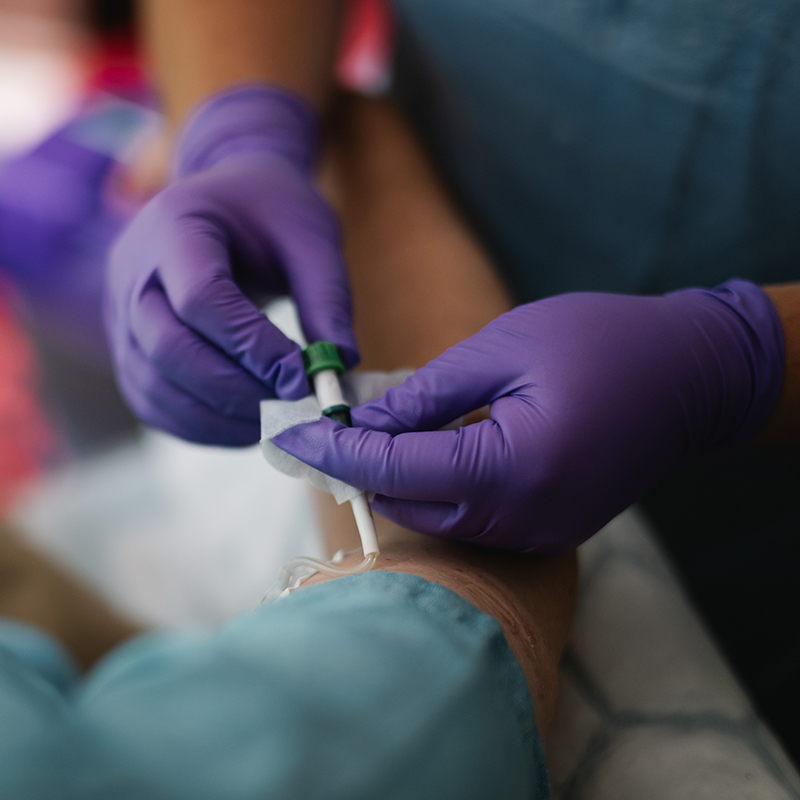Your guide to skin cancer treatment
A skin cancer diagnosis can be overwhelming. Rest assured, you’re not alone, and there are many options for managing the condition and tailoring treatment to suit your individual needs.
Our guide is here to help you understand private skin cancer treatment and the main treatment options available.
Frequently asked questions about skin cancer
What is skin cancer?
Skin cancer develops when abnormal cells in the top layer or deeper layers of the skin begin to grow and divide uncontrollably, outnumbering normal cells. There are several main types:
- Non-melanoma skin cancer: This includes basal cell carcinoma, squamous cell carcinoma and other skin cancers.
- Melanoma skin cancers: Originate from skin cells called melanocytes that produce pigment. Melanoma can be more aggressive, particularly if not caught early.
What are the symptoms of skin cancer?
Most skin cancers start as changes to the skin, such as:
- A sore, lump, patch, or abnormal mole that doesn’t heal, particularly if it crusts, bleeds, itches, or changes colour or texture
- Skin lesions or new skin growths, especially in sun-exposed areas, under nails, on the palms, soles, or in the mouth
- A mole or spot that changes in size, shape, or colour, including existing moles that become asymmetrical, develop irregular borders, or increase in size
- Any abnormal cells presenting as a skin lesion, skin growth, or patch that persists
What causes skin cancer?
- Prolonged sun exposure and frequent use of tanning beds
- Skin regularly exposed to ultraviolet light
- A large number of unusual types of moles
- Family history of skin cancer,
- A weakened immune system
- Age, as an increased risk, typically comes with age
- Certain rare inherited syndromes or exposure to other carcinogens
What are the treatment options for skin cancer?
Your skin cancer treatment depends on the specific type of skin cancer. Main treatment approaches include:
- Surgery: Removal of skin lesions, moles, or tumours
- Topical therapies: Medication creams, used to target abnormal cells
- Cryotherapy: Used to freeze abnormal cells or early cancers
- Photodynamic therapy (PDT): Harnesses light-activated drugs to destroy cancer cells without harming normal cells
- Radiotherapy: Sometimes considered for areas hard to operate on, or in addition to surgery for skin cancers
- Systemic therapies: Options for advanced or metastatic cases may include immunotherapy, targeted therapy, or chemotherapy
How much does private skin cancer treatment cost?
While costs vary, the most common expenses include:
- Initial consultations to review skin lesions and skin conditions
- Biopsies and imaging to identify skin cancer or abnormal cells
- Surgery to remove basal cell carcinoma, squamous cell carcinoma, or melanoma
- Additional therapies: topical, systemic, radiotherapy, or advanced biologic drugs
Coverage depends on your private health plan. Insurance policies may help with costs for consultations, diagnostic imaging (such as for existing moles or abnormal mole detection), surgical procedures, or systemic therapies. For self-paying patients, you can set up payment plans. We encourage you to discuss all aspects with your clinical team and insurance company.
Can you get skin cancer treatment at home?
Yes, many skin cancer treatments and supportive care can be carried out safely at home.
- Application of topical treatments for certain non-melanoma skin cancers or pre-cancerous skin conditions under medical guidance
- Support for symptom management, such as pain relief, monitoring for complications, and advice tailored to skin conditions
- Ongoing remote follow-up and virtual assessment, especially for low-risk skin lesions or for patients with mobility requirements
- Emotional support, reassurance, and guidance in the comfort of your home, especially after procedures or while recovering
Having access to personalised care at home, alongside ongoing clinical support, improves comfort, convenience, and overall confidence in your skin cancer recovery.
Looking for more information?
We’ve worked with thousands of patients, and we know you’ll have a lot of questions.
If you’re ready to talk to us to discuss your options, fill out the form below and we’ll be in touch quickly.
If your enquiry is urgent please call 0345 2636 123 (England and Wales) or 0345 2636 135 (Northern Ireland and Scotland).
We know the benefits of cancer care at home
Our specialist cancer services ensure private medically insured and self-paying patients who want an alternative to hospital can start their treatment faster. We consider all cancer treatments, including those not currently available in hospitals.
